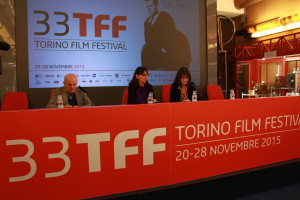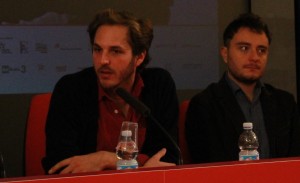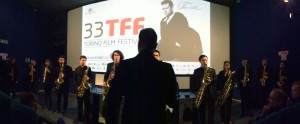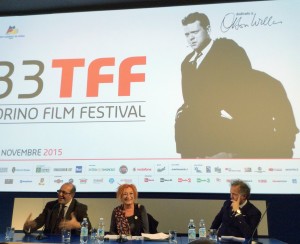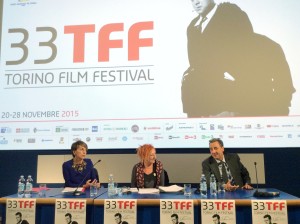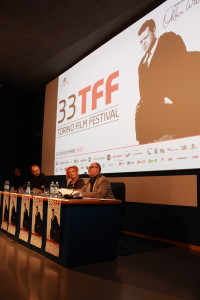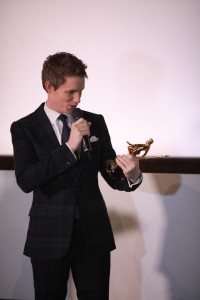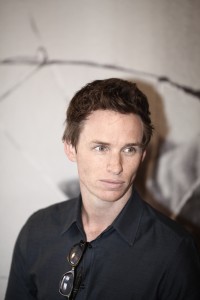Ieri alle 13:00 in Sala Stampa nei locali della Rai, l’ultima conferenza stampa della giornata vedeva protagonista London Road di Rufus Norris. Erano presenti Adam Cork, autore delle musiche, e Alecky Blythe, la sceneggiatrice. Entrambi hanno curato l’allestimento sia del musical che del film. Se il trasformare in musical un evento così tragico come quello di cinque omicidi di prostitute (realmente accaduti a Ipswick) meritava attenzione, ancora più attenzione era necessaria nel momento in cui questo evento veniva trasposto al cinema. “Lo spettacolo nasce come spettacolo teatrale ma questo non ci ha esentato dalla responsabilità di riflettere in quest’opera uno spaccato di vita reale. Normalmente al musical si associa la commedia, numeri di danza, canzoni d’amore e tutta una spettacolarità che invece in London Road non troviamo. La nostra preoccupazione principale è stata quella di essere fedeli e rispettosi nei confronti delle vittime degli omicidi ma anche nei confronti degli intervistati che avevano affidato la loro testimonianza ad Alecky” ha dichiarato Cork.
Il lavoro di Cork e Blythe è stato quello di rendere esattamente non solo le parole dei residenti di London Road ma anche la modalità nella quale erano state espresse. Alecky Blythe adotta infatti, in teatro, la tecnica verbatim: cioè la riproduzione letterale delle dichiarazioni rese da testimoni con tutte le variazioni della voce di chi parla, il tono e le esitazioni. Questo andamento ritmico della voce ha richiesto una strutturazione melodica e ritmica sia per i dialoghi recitati che per i dialoghi cantati: una vera e propria partitura in cui alle parole recitate si è soprapposto un accompagnamento musicale che le ha trasformate in “canzoni”.
Adam Cork ha sottolineato che la transizione dal palcoscenico teatrale allo schermo cinematografico lo preoccupava molto anche in considerazione del successo che aveva avuto il musical, perché temeva la perdita di immediatezza tra gli attori e gli spettatori: “Il cinema ha il suo quarto muro che è lo schermo e temevamo che questo avesse un impatto molto forte sull’interazione tra il pubblico e gli attori. Poi però la riflessione che abbiamo fatto a posteriori è che ciascuno di noi è molto più abituato a vedere una rappresentazione drammatica su uno schermo piuttosto che in teatro: la televisione la guardiamo tutte le sere, a teatro non andiamo tutte le sere, e quindi abbiamo capito che sarebbe stato più facile per il pubblico riuscire ad assorbire una tessitura documentaristica in una forma filmica, più immediata, rispetto a quella teatrale ”.
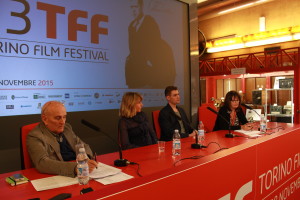
Alecky Blythe non è stata solo la sceneggiatrice di London Road per il teatro e per il cinema, ma si è anche occupata di condurre e montare le interviste. Ha raccontato di essersi recata a Ipswich nel 2006, quando erano già stati rivenuti i corpi delle cinque prostitute: “Sono andata con il mio registratore raccogliendo le testimonianze di persone che avevano vissuto, più o meno direttamente, i terribili eventi. Ipswick è una città piccola, la popolazione era scioccata dai fatti che avevano gettato scompiglio in una situazione di apparente tranquillità: c’era un assassino latitante, problemi di droga e di prostituzione”.
A seguito degli omicidi, London Road si è trasformata da strada tranquilla a comunità spaventata che organizza turni di sorveglianza notturna. Nei due anni successivi la Blythe è tornata più volte a Ipswick e il suo interesse è passato dai cittadini di Ipswich ai residenti di London Road, perché nel frattempo Steve Wright era stato arrestato come responsabile degli omicidi e si era scoperto che viveva in quella strada divenuta ormai il punto centrale del “quartiere a luci rosse” di Ipswich. “Il lavoro che ho fatto, in teatro e in cinema, è stato diverso perché la sceneggiatura cinematografica ha esigenze diverse partendo dal fatto che mantengo le parole cosi come sono state dette durante le dichiarazioni. Nel film ho dovuto ridurre i dialoghi perché il racconto avveniva anche per immagini: ho rinunciato a una parte dei dialoghi, ma non ho rinunciato alla caratterizzazione dei dialoghi, al sapore della testimonianza resa” ha precisato Alecky.
Alla domanda se ci fosse un intento di critica verso i residenti che in alcune parti del film pronunciano parole molto dure nei confronti delle prostitute, la Blythe ha risposto che non c’è mai stata nessuna volontà di criticare i residenti, né c’è stata da parte degli stessi protagonisti alcuna percezione di critica nei loro confronti: “Abbiamo cercato di essere il più possibile rispettosi della sincerità delle dichiarazioni rese dai residenti. Quando sono andata la prima volta a condurre le interviste, naturalmente, percepivo i diversi punti di vista e le tensioni che c’erano, ma tutte le loro rivelazioni erano sincere. Le dinamiche e i conflitti sono via via cambiati nel tempo: questo aveva a che fare con lo scoprire cose che avvenivano nella strada che loro non sapevano stessero avvenendo, e percepivano tutto con un senso di possesso della strada, come se qualcuno si sentisse più o meno titolato a controllarla. La sensazione che probabilmente arriva al pubblico nell’ascoltare le loro dichiarazioni è la difficoltà nel capire quello che loro hanno provato in questo percorso che poi è quello che ha generato certi toni nell’esprimere le loro opinioni. Credo che nessuno di noi che non ha vissuto gli eventi, possa capire cosa significhi avere la vita completamente stravolta”.
Durante la lavorazione del film, ha poi aggiunto Alecky, sia lei che Cork, che Norris, sono stati molto attenti a mantenere aggiornati i residenti sulle scelte effettuate e su come intendevano portare sullo schermo questa vicenda. Hanno ad esempio mostrato loro la location che avevano scelto per il film, una strada molto diversa dalla vera London Road, ma che consentiva al regista di mostrarne l’evoluzione: da strada tetra, squallida, oscura dell’inizio a strada bella e pieni di fiori che vediamo alla fine del film. La reazione da parte di tutti i residenti è stata molto positiva al punto che per la scena conclusiva del film molte delle comparse erano proprio i residenti stessi.
La reazione, invece, del pubblico italiano, come faceva notare un giornalista presente in sala stampa, è stata anche di riso in alcuni momenti del film. La sceneggiatrice ha risposto che questo è normale, e in parte anche voluto, proprio in virtù del fatto che quando lei lavora ad un progetto preferisce concentrarsi non sull’occhio del ciclone ma sulle onde che questo propaga, lasciando anche un po’ “respirare” la storia e permettere al pubblico di provare empatia e simpatia per i protagonisti. La volontà di decentrare lo sguardo è anche la motivazione alla base dell’assenza di Steve Wright sia nel musical che nel film: “Il motivo per cui sono andata a Ipswich è perché le vicende che mi stavano a cuore erano quelle della popolazione della città, in particolare dei residenti della strada, per capire come la vita di queste persone sia stata completamente sconvolta per la casualità di abitare vicino ad un serial killer. In più Steve Wright era già coperto dai media di tutto il mondo. E’ la percezione che mi hanno dato le persone che ho intervistato che volevo rendere in questo lavoro”.
Adam Cork, in chiusura, ha aggiunto che il riso spontaneo che può sorgere guardando il film non è un riso di derisione, ma appunto un riso empatico rispetto a qualcosa che il pubblico riconosce come familiare, una reazione che potrebbe avere chiunque nella medesima situazione.



